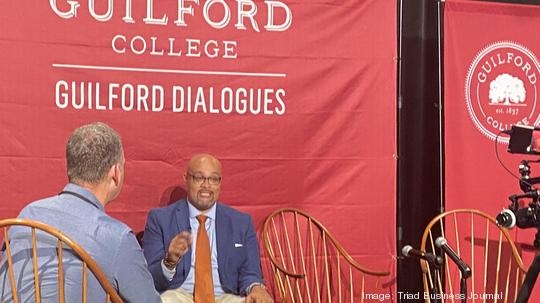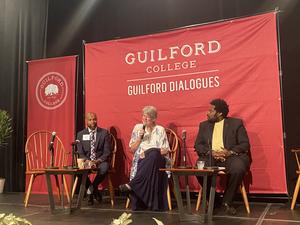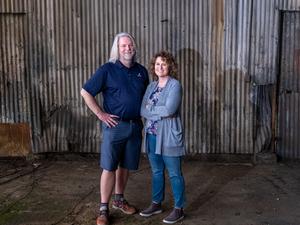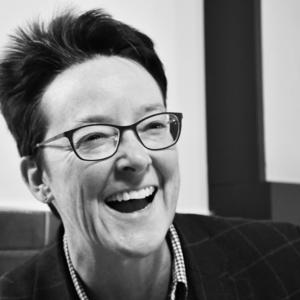
Being an entrepreneur comes with massive tribulations, but becoming a successful one is a different story. Turns out, community partnership is one of the most vital aspects necessary to do so.
During an entrepreneurial panel discussion held during Guilford College’s Inaugural Guilford Dialogues, four experts had a lot to say about how to be a successful entrepreneur in current times.
The Strategies for Entrepreneurial Development session unpacked what it takes to progress and thrive being an entrepreneur and new to the arena. Moderated by Lisa Hazlett, vice president of the Nussbaum Center for Entrepreneurship in Greensboro, the panelists included:
- Simon Gifford, CEO of Mashauri Limited;
- Russell Fugett, founder and chief encouragement officer of the Jumla Network; and
- Wendy Bolger, founding director of the Center for Innovation and Entrepreneurship at Loyola University-Maryland.
Being creative and flexible was a recurring theme throughout the panel discussion, with encouragement for newcomers on how to be comfortable with being creative.
“Not every new entrepreneurial venture is going to be the next Facebook,” Gifford said. “The innovation may not be that you are designing something actually brand new that no one’s ever heard of before, it’s in redesigning the business model [and] the way you actually go about and developing value or living value into customers.”
Collaboration is key
Although many may think that entrepreneurs are lone wolves when it comes to their business models, the panel assures that to be successful, you have to collaborate.
“Community matters. No one does it by themselves. When you think about partnerships, when you think about how you combine goals and values and outcomes, everybody’s interest being mutually aligned, that’s certainly the key,” Fugett said. “Being an entrepreneur is extremely rigorous. Who you have that can help you solve the challenges and problems that inevitably will come, will help meet a critical need in the marketplace.”
Hazlett shed a light on just how many resources are available on the local level after the session concluded.
“We have about 62 entrepreneur support organizations in the Triad. Those organizations will help you at whatever stage of the business you’re in,” Hazlett said.
“That’s really just the number one thing for entrepreneurs to understand in this area is that they don’t have to do this by themselves. We have enough organizations and enough people in this town that want them to be successful, that we can get them the assistance that they need and the best part is that usually, it’s at no charge.”
Are you coachable?
Locations such as the Small Business and Technology Development Center (SBTDC), located at the Nussbaum Center in East Greensboro provides that community and partnership for many small business owners and entrepreneurs to grow their businesses.
“The biggest thing that we look for in entrepreneurs is coachability. Being able to pivot when necessary or tweak, if necessary. But, the number one thing that I would tell entrepreneurs is to trust your gut. If you don’t have a good feeling about it, don’t do it,” Hazlet said.
Since the pandemic, entrepreneurs have flooded the market. Many millennials have the desire to quit the structured workforce and be their own boss. They have the ideas, but becoming successful with them can be a problem.
“It’s some young people that don’t even know they’re innovative, don’t even know they have an idea that could solve a critical need,” Fugget said. “We talk about partners, mentors and coaches who could help guide and advise how you put innovation [into practice].
"We all have the capacity to imagine and to dream and to create. It’s in our nature as humans, so how do you take that and put it in an ecosystem and environment with a framework?”
The college began the Guilford Dialogues series on Wednesday, exploring strategies to combat economic inequality, a social issue that attacks the betterment of many small businesses in the country. The program spanned three days and included conversations on various topics with a panel of scholars, political leaders and everyday practitioners.








